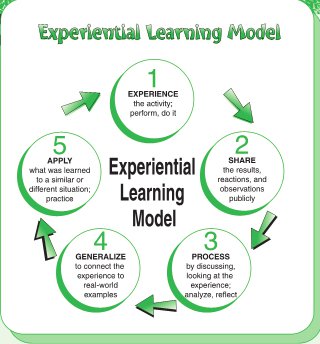The National 4-H Council publishes a wide variety of course guides in the areas of science, engineering, technology, health and fitness, nutrition, communication, the expressive arts, citizenship, leadership, service, consumer finances, and workforce preparation that are used by 4-H club members, but they can also be purchased and used by homeschoolers for individual students or group classes. Guides are very reasonably priced and offer a brilliantly structured combination of hands-on/experiential learning and factual information.
Many course guides are published as series with guides at increasing levels of difficulty, sometimes for children of different ages. For example, there are three guides in the Small Engines series. The first guide is appropriate for students as young as third grade, while the third guide might be used up through twelfth grade. Guides in other series such as What’s On Your Plate? don’t vary in level of difficulty but are all appropriate for grades five through twelve.
Whatever the situation—4-H club, homeschooling group class, or students working individually at home, students need a “helper” who will assist and encourage the student as they work through the projects, help them to think through and articulate what they observe, ask questions to evaluate student comprehension, and check their projects and written assignments. How knowledgeable the helper needs to be varies by the subject matter.
All guides follow an experiential learning model where students first experience an activity, then share and discuss results. Next they analyze and evaluate what they have observed. After that, they make connections to real world experiences then come up with their own ideas about how what they learned applies or might be used in different situations. Guides always challenge students to think creatively.
These guides will probably be used as supplements by most homeschoolers, but homeschoolers could use two or three of them—possibly using guides from one or more areas of science—over the course of a school year to create a full science course. 4-H’s practical, hands-on approach to science is more interesting than most science textbooks, and students are likely to really learn the subject matter since guides go in-depth with explanations and applications.
Actually joining a 4-H Club and using these guides within that program has additional benefits that you might want to consider. Working toward the different achievement pins within a club should help students also develop valuable skills in communication, cooperation, planning, organizing, responsibility, leadership, and other areas.
See individual reviews of selected 4-H courses: Junk Drawer Robotics, Electric Excitement, and What's On Your Plate?









